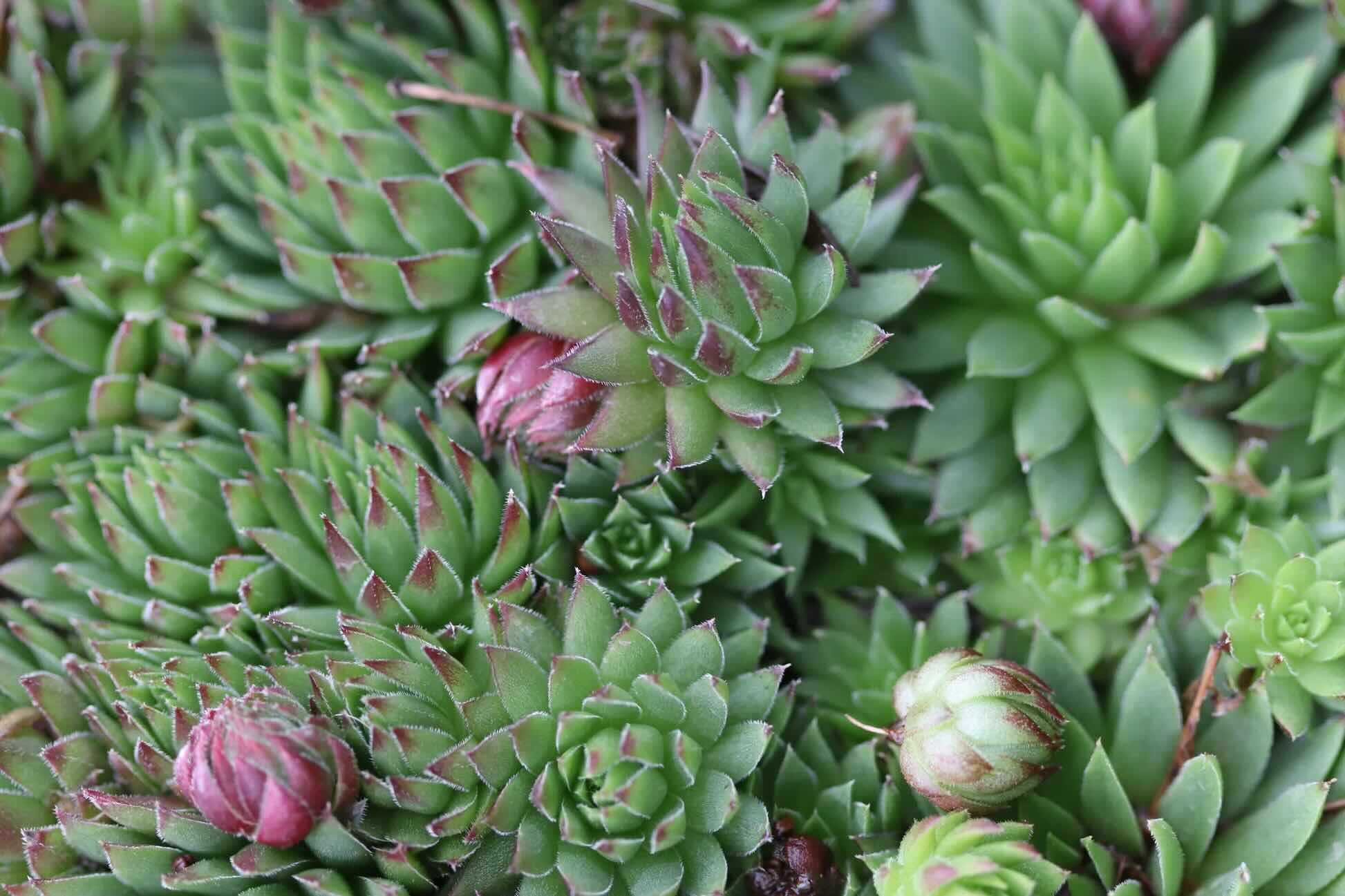
What is Jovibarba? Jovibarba, often called "Hen and Chicks," is a fascinating succulent plant. Known for its rosette shape, it thrives in rocky, well-drained soil. Native to Europe, particularly the Alps and Carpathians, this plant is a member of the Crassulaceae family. Unlike its close relative, Sempervivum, Jovibarba produces smaller, more delicate rosettes. Its name means "beard of Jupiter," hinting at its ancient roots and mythological significance. These hardy plants can survive harsh conditions, making them perfect for rock gardens or container planting. With minimal care requirements, Jovibarba is ideal for both novice and experienced gardeners. Whether you're looking to add some greenery to your space or simply curious about unique plants, Jovibarba offers a blend of beauty and resilience.
Jovibarba: The Hardy Succulent
Jovibarba, a lesser-known succulent, belongs to the Crassulaceae family. These plants are often overshadowed by their more famous relatives, like Sempervivum. However, Jovibarba has unique characteristics that make it fascinating.
-
Jovibarba means "beard of Jupiter." The name comes from Latin, reflecting the plant's ancient roots and mythical connections.
-
Native to Europe. These succulents primarily grow in the mountainous regions of Central and Southern Europe.
-
Two main species. Jovibarba includes Jovibarba heuffelii and Jovibarba globifera, each with distinct features.
-
Not true Sempervivum. Although often confused with Sempervivum, Jovibarba has different flower structures and propagation methods.
Unique Growth and Propagation
Jovibarba's growth habits and propagation methods set it apart from other succulents. Understanding these can help in cultivating healthy plants.
-
Produces offsets called "rollers." Unlike Sempervivum, which produces offsets on stolons, Jovibarba's offsets detach and roll away from the parent plant.
-
Slow-growing. These plants take their time to mature, often requiring several years to reach full size.
-
Forms dense rosettes. The rosettes are tightly packed, creating a compact and attractive appearance.
-
Thrives in poor soil. Jovibarba prefers well-draining, rocky soil, making it ideal for rock gardens.
Adaptations to Harsh Conditions
Jovibarba's ability to survive in tough environments is one of its most remarkable traits. These adaptations make it a resilient and low-maintenance plant.
-
Drought-tolerant. These succulents store water in their leaves, allowing them to survive long dry periods.
-
Cold-hardy. Jovibarba can withstand freezing temperatures, making it suitable for various climates.
-
Sun-loving. These plants thrive in full sun, which helps them maintain their compact form and vibrant colors.
-
Pest-resistant. Jovibarba is generally resistant to pests, reducing the need for chemical treatments.
Flowering and Reproduction
The flowering and reproductive habits of Jovibarba are unique and contribute to its charm. These aspects are crucial for those interested in plant breeding or propagation.
-
Yellow-green flowers. Jovibarba produces small, star-shaped flowers that are typically yellow-green.
-
Blooms in summer. Flowering usually occurs in the summer months, adding seasonal interest to gardens.
-
Monocarpic nature. Each rosette flowers once and then dies, but the plant continues to thrive through its offsets.
-
Self-pollinating. Jovibarba can self-pollinate, ensuring seed production even in isolated conditions.
Care and Maintenance
Caring for Jovibarba is relatively straightforward, making it a great choice for both novice and experienced gardeners. Proper care ensures healthy growth and vibrant plants.
-
Minimal watering. Overwatering can lead to root rot, so it's best to let the soil dry out between waterings.
-
Avoid fertilizing. These plants do not require much fertilization; too much can harm them.
-
Prune dead rosettes. Removing dead rosettes helps maintain the plant's appearance and health.
-
Protect from excessive rain. While drought-tolerant, Jovibarba can suffer from too much moisture, so good drainage is essential.
Interesting Facts and Uses
Jovibarba has some intriguing facts and practical uses that make it more than just a garden plant. These aspects highlight its versatility and appeal.
-
Used in traditional medicine. Some cultures use Jovibarba for its purported medicinal properties, such as treating skin conditions.
-
Symbol of resilience. In folklore, Jovibarba symbolizes resilience and protection, often planted on roofs to ward off lightning.
-
Attractive to pollinators. The flowers attract bees and other pollinators, supporting local ecosystems.
-
Great for container gardens. Jovibarba's compact size makes it perfect for container gardening, adding greenery to small spaces.
-
Low-maintenance landscaping. Ideal for xeriscaping, Jovibarba reduces the need for watering and maintenance.
-
Propagation by division. Besides offsets, Jovibarba can be propagated by dividing mature plants.
-
Variety of colors. The rosettes come in various shades of green, red, and purple, adding visual interest.
-
Long-lived. With proper care, Jovibarba can live for many years, providing lasting beauty to gardens.
Final Thoughts on Jovibarba
Jovibarba plants are more than just pretty succulents. They’re tough, adaptable, and easy to care for. Whether you’re a gardening newbie or a seasoned pro, these plants can add a unique touch to your collection. Their ability to thrive in various conditions makes them perfect for both indoor and outdoor gardens. Plus, their low-maintenance nature means you won’t have to fuss over them constantly.
These plants also have a fascinating history and a variety of uses. From their medicinal properties to their role in folklore, Jovibarba plants are truly special. They’re not just eye-catching; they’re also practical and versatile.
So, if you’re looking to add some green to your space, consider Jovibarba. They’re resilient, beautiful, and full of interesting facts. Happy gardening!
Was this page helpful?
Our commitment to delivering trustworthy and engaging content is at the heart of what we do. Each fact on our site is contributed by real users like you, bringing a wealth of diverse insights and information. To ensure the highest standards of accuracy and reliability, our dedicated editors meticulously review each submission. This process guarantees that the facts we share are not only fascinating but also credible. Trust in our commitment to quality and authenticity as you explore and learn with us.
